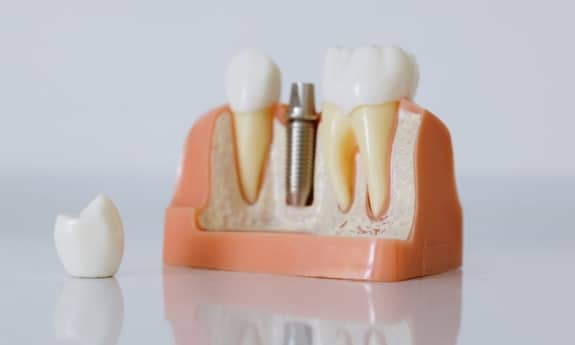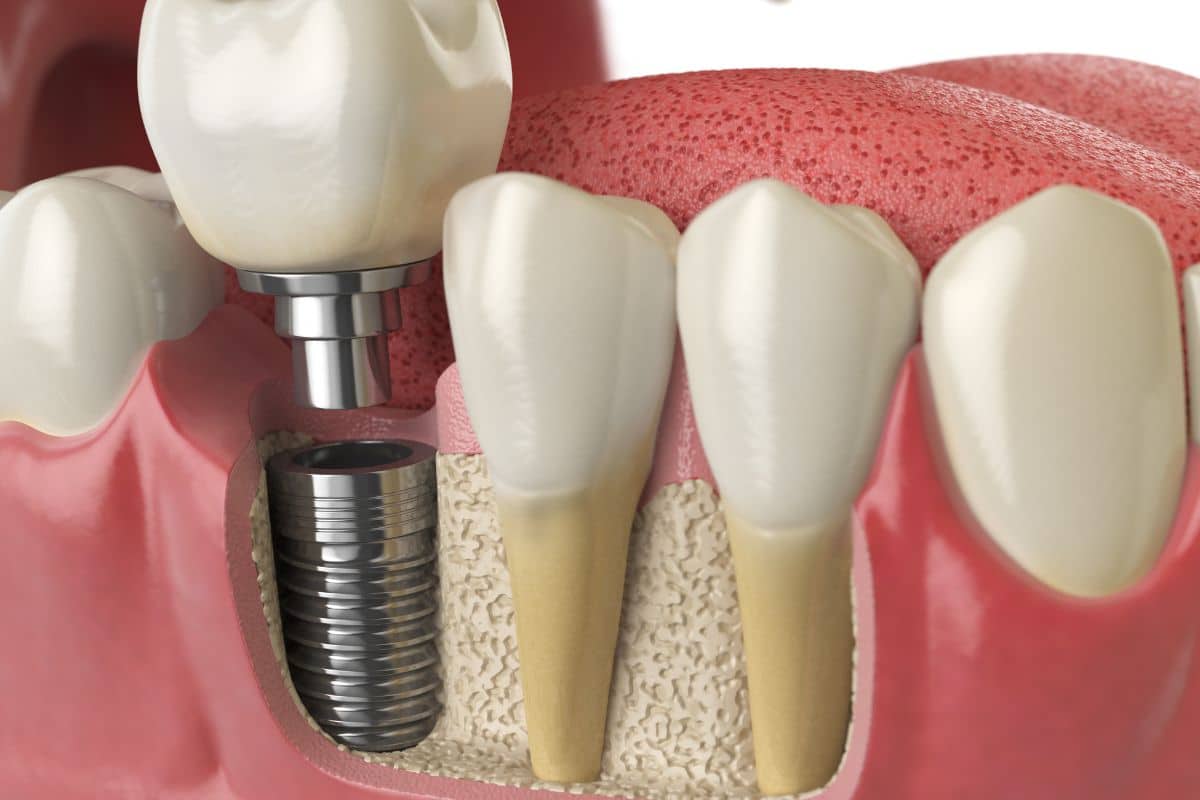Pay Online
What Are The Symptoms Of A Loose Dental Implant?

Dental implants are the most stable and long-term fix for missing teeth. They’re made to attach to your jawbone and act like a real tooth. But there can be instances when an implant becomes loose—something that you should never ignore. Left untreated, it can cause other oral problems. So, how do you determine if your dental implant is loose? Here are the most significant symptoms and what to do next.
Why Would a Dental Implant Become Loose?
Dental implants Elgin are meant to feel as secure as your own teeth. When they don’t, understand something is wrong. Some of the most prevalent reasons for a loss of dental implants are:
- Failed osseointegration – When the implant won’t bond with the jawbone.
- Peri-implantitis – Gum infection similar to periodontal disease, most often resulting from poor oral hygiene.
- Bone loss – Can be the result of gum disease or a change in the density of the jawbone.
- Mechanical issues – Loose abutment (the connector) or crown can cause it to appear as if the whole implant is loose.
Early detection of these issues increases the chances of saving the implant.
What Are the Symptoms of a Loose Dental Implant?
If your implant feels off, watch out for these warning signs:
1. Mobility or Shifting
Your implant should never shift. If you ever feel any wiggle, especially when eating or touching it, that is a sure sign that something is wrong.
2. Pain or Discomfort
Some discomfort is normal after implant surgery, but persistent pain weeks or months later could be a sign of implant failure or infection.
3. Gum Recession or Inflammation
- Red, sore, or bleeding gums around the implant are a symptom of peri-implantitis.
- You might also notice gum recession that exposes more of the implant.
4. Difficulty in Chewing
If chewing is uncomfortable or painful, your implant is probably not well-anchored.
5. Clicking or Abnormal Sounds
Clicking, popping, or abnormal sounds on contact of the implant are symptoms of a loose abutment or crown.
6. Visible Gaps or Misalignment
Visible alteration in the implant position or spaces in your smile is worth exploring.
What to Do If You Notice a Loose Implant?
Don’t wait. Call your dentist as soon as you notice any of the following symptoms. Working quickly can:
- Prevent further gum or bone damage
- Prevent infection from spreading
- Save the implant potentially before the whole replacement is required
- Do not chew on the same side, and exercise good oral hygiene until your dental visit.
Can a Loose Implant Be Fixed?
Yes, in most cases it can be fixed. Treatment varies depending on what’s causing the issue:
- A loose crown or abutment can usually be tightened or replaced.
- Infections or inflammation can be cured with antibiotics and deep cleaning.
- In extreme cases, the implant must be removed and replaced after healing.
You should never ignore a loose dental implant. Whether it is a minor tweak or a complete overhaul, catching it early is a big plus. Notice variations in how your implant fits or appears, and don’t wait to get your dentist’s opinion. Guard your investment and your smile by acting sooner rather than later.
Recent Posts

Why Is It Critical to Replace a Missing Molar Even If It’s Not Visible When I Smile?

What Should I Do If My Child Knocks Out a Permanent Tooth in Elgin?

Can Invisalign Fix Overbite? How It Solves Complex Dental Issues in Elgin, IL

How Does Thumb-Sucking or Pacifier Use Affect Teeth?


